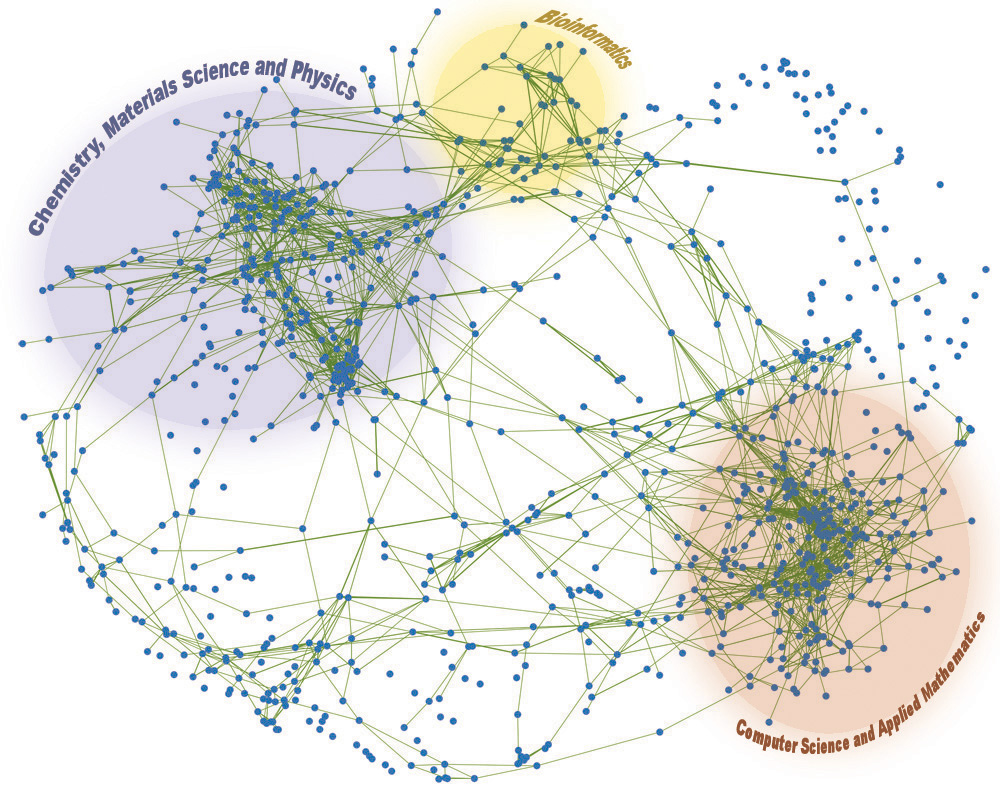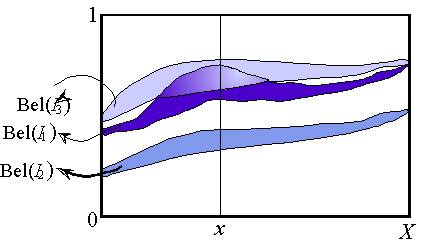Computational Intelligence
Computational Intelligence is an umbrella term that unites Artificial Intelligence and Machine Learning (AI & ML) with systems thinking (encompassing complex networks and systems research) towards uniting inductive and deductive strategies in the development of actionable models of complex systems that can consider previously unseen scenarios. Understanding and managing the functioning of multi-level complex systems, from genes to global cultures, represents a key challenge of the XXIst century. These complex systems cover an extraordinary range — including the dynamic web of cellular processes and genetic regulation, the intricate wiring of the brain, patterns of human behavior, as well as the operation of social groups, natural environments, organizations, economies, and science itself. Across all these systems, collecting, processing, and analyzing data are indispensable steps toward understanding, modeling, and visualizing the underlying multi-level organization. AI & ML are essential building blocks in this endeavour. However, inductive inference as used in most AI&ML methods leads to biases and failures in predicting and controlling the multilevel complexity that defines humanity’s most pressing problems. The inclusion of top-level deductive models based on the best theoretical considerations available — but built up with parameters estimated from large-scale data via AI & ML — allows the causal understanding, prediction, and control of complex systems. In biomedicine, our group contributes to such (large team) pipelines with methods that merge inductive data inference from large-scale data into causal network representations that explain and facilitate actionable control of complex biochemical networks. From the same perspective, the study of technological, social and political networks is a very active line of research in our group, especially focusing on developing knowledge representations, recommender systems, and studying social and psychological determinants of health.

Computational Social Science

With the availability of large-scale data about many domains ranging from molecular biology to social interactions, together with the ubiquity of the web including social media, computational intelligence has made a substantial leap in providing predictive models of many complex social problems. Indeed, the new discipline of Computational Social Science relies on computational intelligence to study social phenomena. such as voting, social movements, and health-related activities. Using web search, social media (Instagram, Twitter, Reddit, and ChaCha), electronic health records, and other sources of non'conventional data, we are studying collective social behavior in health-related problems (human reproductive behavior, drug interaction), social unrest situations, political science, and other social phenomena.
MoreWeb Intelligence, Relation Extraction, Link Prediction & Recommender Systems
We have developed adaptive recommendation systems for digital libraries, movie databases, and biomedical concepts. These methods are based on complex networks, information theory, literature and social media mining, models of cognitive categorization, and Hebbian learning. Using such a knowledge graph approach, we have worked on inferring associations, links, and relations in many biomedical and social problems, and even automated online fact-checking from Wikipedia.
More
Uncertainty and generalized information theory

From the theoretical foundations of computational intelligence in cognitive science and artificial life, a key problem is how information, symbols, representations and the like can arise from a purely dynamical system of many components. We have worked in various mathematical models of uncertainty such as Fuzzy Set Theory , the Dempster-Shafer Theory of Evidence (DST), and information dynamics. We have applied these methodologies to cognitive science, machine learning, complex systems, and neuroscience.
More